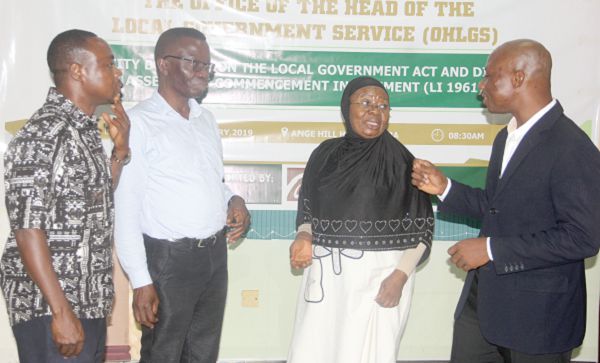
'Ghana must go agro-ecological way'
The Executive Director of the Peasant Farmers Association of Ghana (PFAG), Ms Victoria Adongo, has stated that the country needs to adopt more environmentally sustainable methods of farming as means of ensuring food security.
She said the country needed to adopt farming methods that were agro-ecological. The concept, she said, made use of environmentally friendly materials and principles in designing and managing agro-ecosystems on a sustainable basis.
Ms Adongo was speaking at a workshop organised by the PFAG in collaboration with the Office of the Head of Local Government Service.
The workshop was aimed at building strong relationships between farmers and district assemblies and was attended by farmers selected from across the country.
The participants were sensitised to governance at the local level as well as on decentralisation.
“Agro-ecological farming practices enhanced agriculture production with less negative environmental and social impacts, while improving quality, high yields and food safety,” she said.
Working with the district
According to Ms Adongo, the association was working to adopt organic agriculture practices, which is agro-ecological, as a means of having sustainable agriculture in the country.
That notwithstanding, she said, without effective collaboration with district assemblies, implementation of agro-ecological practices would not be successful.
“There is a disconnect between farmers and the assemblies as most farmers are not familiar with institutional arrangements that are in place to support local government administration and governance in general,” she said.
Ms Adongo said considering the fact that agriculture was the backbone of the country’s economy, it was pertinent that farmers were involved in the decision making processes, especially at the local level.
Creating the platforms
The Head of the Public Affairs Unit at the Office of the Head of Local Government Service, Mr Joseph Ankamah, said the local government structure always had agriculture included in its planning.
However, he said, the disconnection between agriculture and local governance was because of the unavailability of platforms for engagement.
He said agriculture was essential to the country’s development and hence the need to pay more attention to the sector.
Accordingly, he said, the workshop was a good start to forging effective relationship between farmers and district assemblies.
